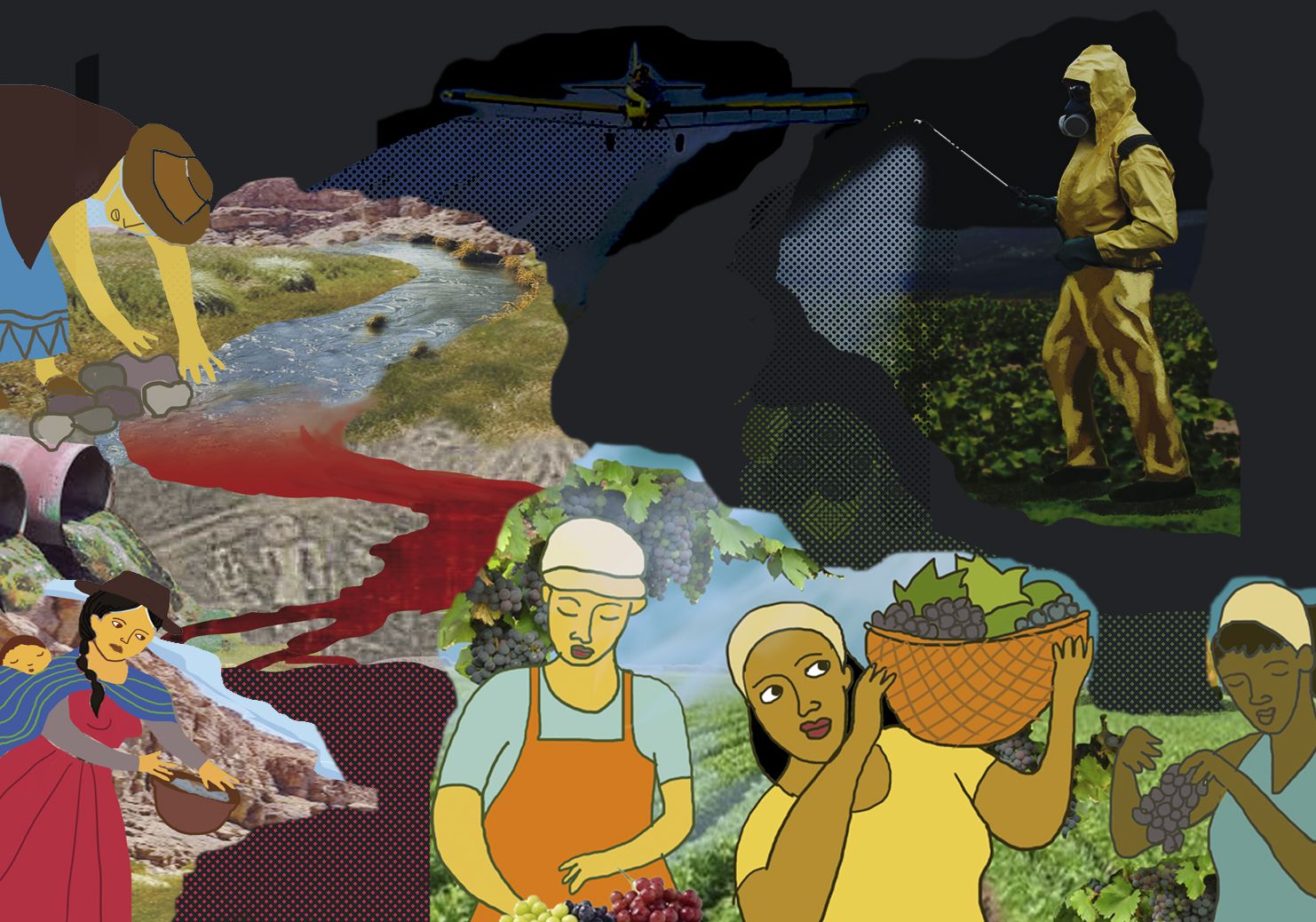Chile: Water contamination by pesticides, the impact of agro-export expansion.

The current system of agricultural production with emphasis on export and economic yield has generated strong socio-environmental impacts for farmers in the territories where it is installed. In Chile in particular, the expansion of agro-exports for more than 35 years has been accompanied by a high consumption of pesticides, as is the case in the regions of Maule, Ñuble, O’Higgins, Valparaíso and Metropolitan, causing the degradation of water quality due to the presence of a wide variety of agrochemicals highly dangerous for life.
Within the framework of the Fondecyt research project “Agriculture and reproduction of socio-ecological inequalities in the context of water crisis: Analysis of the agro-export expansion in the Central Valley of Chile”, the following research projects were carried out at the beginning of the 20th century At the beginning of 2024, water samples were taken to analyze the presence of agrochemicals in some rivers of the Maule and Ñuble regions.
These samples showed the presence of diuron and fosetyl-Al above the detection limit in the Putagán-Loncomilla (Maule), Ñiquén (Ñuble) and Changaral (only fosetyl-Al; Ñuble) rivers. These two chemicals have been classified as carcinogenic and highly hazardous in the United States and the European Union.
This is serious information, considering that many families in these regions do not have access to drinking water, so the wells near the rivers are also being contaminated and consequently, the food that irrigates their waters.
On Tuesday, August 27, 2024, the National Association of Rural and Indigenous Women (ANAMURI), together with representatives of the Pesticide Action Network (RAPAL), part of the research team, OLCA and local organizations, delivered a letter to President Gabriel Boric, with a copy to the Ministry of Public Works, Superintendence of Environment, Minister of Environment, Minister of Health and the Ministry of Agriculture.
At the same time, it was accompanied by a formal complaint for contamination and deterioration of water quality to the Director General of Water, urgently demanding the establishment of primary and secondary standards that include highly hazardous pesticides. Unfortunately, no response was received from the authorities to this initiative, and no deadlines were set even with the urgency that this issue represents. ANAMURI, together with peasant and social organizations, will continue with the Ethical Tribunals and its permanent campaign “Agrotoxics Kill”, demanding the total elimination of the use of pesticides. demanding the total elimination of the use of pesticides.
This post is also available in Español.
